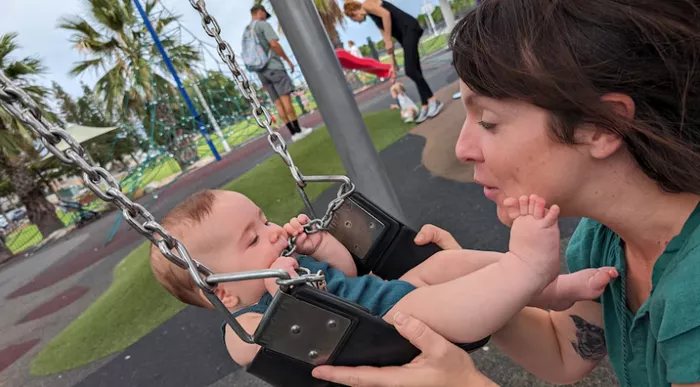Sophie, a 36-year-old from Adelaide, was surprised when her partner suggested giving their daughter his surname during her pregnancy. Despite not being married and preferring not to hyphenate their daughter’s name, they chose his surname as a middle name instead. “It wasn’t crucial for me to share a surname with my child, but I appreciate the feminist statement it makes,” Sophie explains, drawing from her own experience of being raised by a single mother with her surname.
Research from Swinburne University of Technology reveals that in Australia, despite parents not sharing surnames, children often receive their father’s surname. Only a minority, less than 6%, receive solely their mother’s surname.
Lorelei Vashti, author of How to Choose Your Baby’s Last Name: A Handbook for New Parents, notes a cultural shift where more parents opt for non-traditional surname options for their babies.
Individual Stories of Naming Choices
Meagan Zammataro, 44, Gold Coast/Yugambeh Language Region
Meagan, of Sicilian and Scottish descent, chose to give her daughter a hyphenated surname. Despite criticism, she felt strongly about passing on her family name, which she treasures deeply.
Melanie, 43, Melbourne
Melanie and her partner decided their children would take her surname because she would be the primary caregiver. Despite some raised eyebrows, Melanie, a staunch feminist, believes it’s a logical decision reflecting her family dynamics.
Mariana, 36, Geelong
Originally from Mexico, Mariana chose her mother’s surname and her husband’s surname for her children, hyphenating them for ease of pronunciation in both English and Spanish. She finds special meaning in connecting her children through their names.
Jade, 34, Sydney
Jade and her husband both retained their surnames due to strong emotional attachments and practical considerations. When their children were born, they decided to give them Jade’s surname, emphasizing simplicity and family closeness.
Each mother’s decision reflects personal values, cultural influences, and practical considerations, highlighting a broader trend towards diverse naming practices among modern families.


